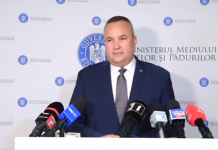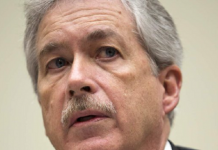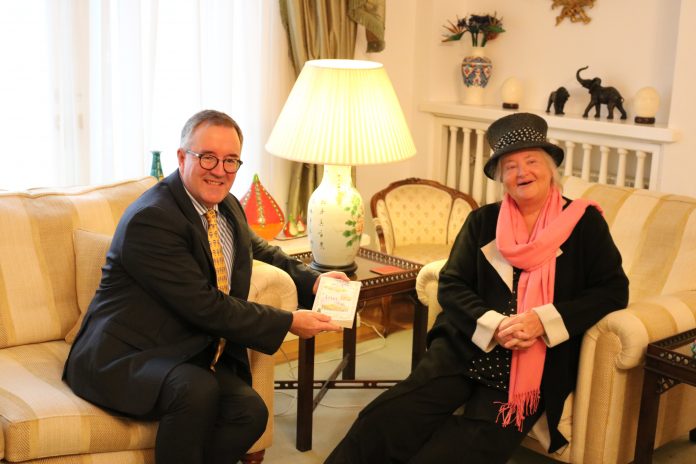Arriving in Romania aged 50 plus suffering from a “mental fog” after the death of her older sister, British writer Arabella McIntyre-Brown has tapped into her creative spirit from her mountain top home and is putting the country on the map.
When she moved to the Carpathians from Liverpool in 2010, locals were naturally curious about the new village resident. “Why are you on your own? Why don’t you have a husband? But when they discovered I was a writer they said “ah, ok…” and I can get away with anything,” she chuckles.
A decade later, “the neighbours are really cool, chilled, and at the Sunday market I am really good ‘barfa’ (gossip) value,” she says.
The clear air of Magura 1,000 meters up the mountain helped lift the fog and the grief after the death of Ginny and inspired the five books McIntyre-Brown has written in the past three years.
“A Stake in Transylvania” written in solitude from her mountain lair was released in paperback and ebook formats on Thursday as part of the UK campaign #LiteratureIsGREAT.
British Ambassador to Romania Andrew Noble gave it a plug at his Residence in Bucharest.
Noble praised the book for unveiling the lesser-known charms of Romania to a wider audience. “The Financial Times called (Transylvania) the new Tuscany,” he said of a recent article in the paper. “Half the people are very happy, and the other half are thinking “Oh God, more tourists!”
Beyond McIntyre-Brown’s literary talents, Noble predicts the book will lure tourists to the undervisited area. “I am in favour of the development of tourism. That is how the impression of Romania will be modernised,” he said.
He believes the book will become a bestseller. “Move over Peter Mayle,” he said referring to the British writer who wrote “A Year in Provence” in 1990 which became an international bestseller and was made into a TV series.
McIntyre-Brown’s brother-in-law Sir Ranulph Fiennes, known as the world’s greatest explorer, wrote the foreword. His late wife, her sister Ginny, also an explorer, travelled to the South and the North Pole before her untimely death in 2004.
Of his own visit to the mountain hamlet of 553, about 35 kilometres southwest of Brasov, Noble says: “It takes your breath away. It’s Tolkien and C S Lewis rolled into one.”
In her own words, when McIntyre-Brown arrived in Magura in the Piata Craiului national park, “I spoke about three words of the language, I had no money, no pension and no plan B” She instantly felt at home as the limestone rock reminded her of the chalk soil of her native West Sussex in southern England. Noble adds: “It’s not that you went there to the village, but you were fully subsumed by the community.” McIntyre-Brown demurs: she doesn’t go to local weddings and funerals.
Though she loves her solitude, McIntyre-Brown acknowledges “Transylvania, the word is one of the hot brands of the world,” though she refuses to utter the name of the fictional Count Dracula created by another British author Bram Stoker, calling him “he who shall not be named.”
And while a “hot brand” may be of commercial value, the book is less obviously so. The 330-page read is a fascinating and honest study of her own state of mind, the seasons, animals (both pets and wild creatures), fences, making hay and naturally the locals and other folk she encounters. She read out loud an excerpt about sheep wandering into her garden and home which delighted and amused the British and Romanian audience at Thursday’s reception.
Like many foreigners who have immersed themselves into Romanian life, McIntyre-Brown is asked whether she now considers herself Romanian. She insists she remains resolutely British, but Noble suggests that serving “afinata” (blueberry brandy) with homemade scones (rather than the traditional pot of tea) to visitors shows she’s picked up some local habits.
“A Stake in Transylvania” has already been published in Romanian “Din Liverpool in Carpati,” for Romanian readers. Her other books include “Liverpool: The First 1000 Years” and she penned a series of fictional children’s books from Magura.
She’s now plotting her next title, and as you might expect, it will be full of mystery and intrigue. This one is a crime novel based in Sussex that moves to Transylvania, just like the journey our writer undertook.
Website: https://arabellamcintyrebrown.com/
Alison Mutler is an experienced British journalist based in Bucharest and has covered Romania, Moldova and occasionally Bulgaria and Hungary for almost 30 years. She first reported from Romania, Bulgaria and Moldova before communism ended, and was In Romania, working for British television station ITV during the 1989 anti-communist revolt. She recently left the Associated Press after 25 years. Her Twitter handle is @AlisoNJMutler




















How condescending to claim that this British writer „puts Romania on the map.” This isn’t some provincial backwater. Knock it off with the colonialist attitude.
@Alexandru. To put a person or a place „on the map” is an English idiom which means popularising someone or something, or making it more prominent. Of course Transylvania is already on any map of the world, and the writer meant no offence to Romanians or Transylvania!
She put Romania on the map?? That’s an insult to our country, with all the respect for this writer. Romania is on the map and this unknown provincial writer has done nothing for my country. I am sorry for the sharp words but be more grounded with your words
Maria, to put a region or a person on the map is an English idiom not a literal phrase. It means to make something famous or more popular. Nobody could possibly think that Transylvania wasn’t on the map!